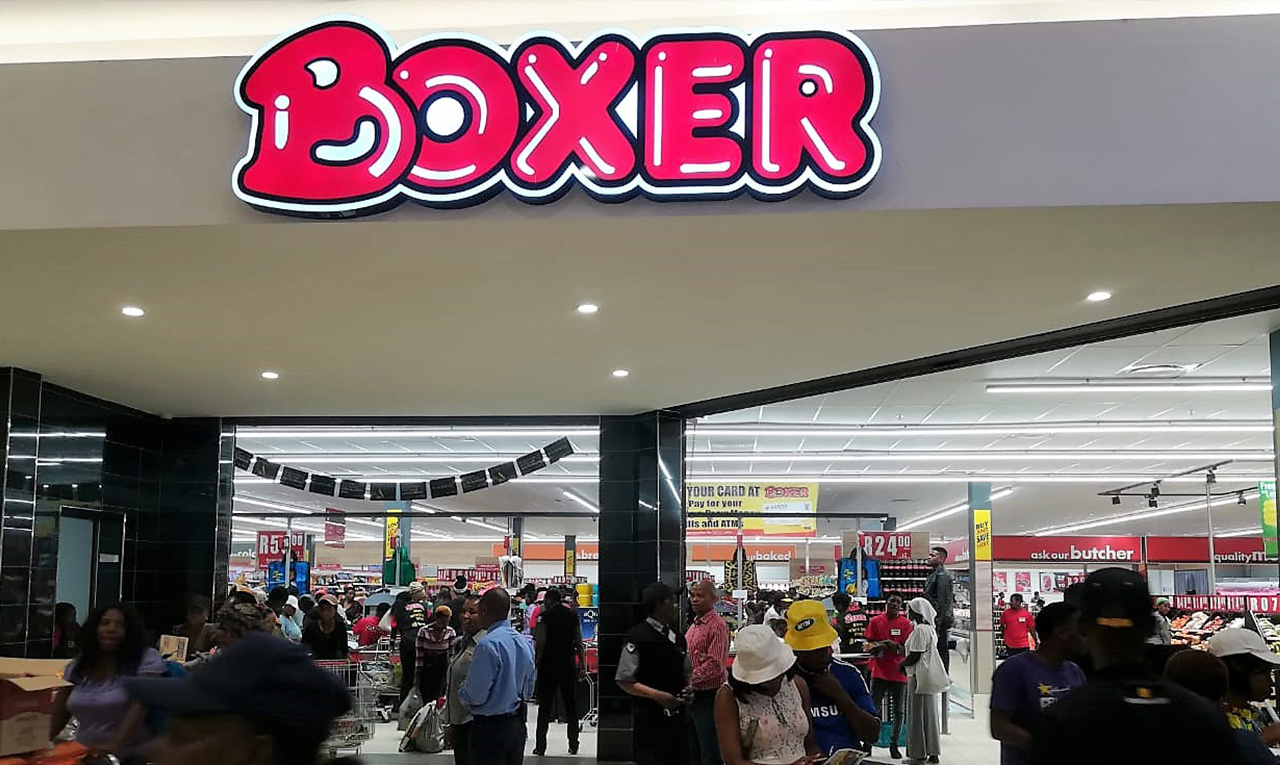Pick n Pay plans 200 new Boxer stores amid battle for lower-income market
Over the next three years, Pick n Pay will add another 200 new stores to its Boxer discount supermarket chain, from 342 company-owned stores currently, as it takes on Shoprite in the lower income part of the market.

Penelope Mashego | Fin24
Pick n Pay CEO Pieter Boone told shareholders on Wednesday that South Africa’s food and grocery market is set to grow by almost R200 billion over the next five years. He explained that most of the growth will be driven by the lower income part of the market. Pick n Pay currently only has an 11% share of this market.
"This is a big opportunity for us. The good news is that through Boxer and Pick n Pay Value, we are gaining market share in this segment of the market. We also have work to do in the middle and the more affluent parts of the market," he said. Overall, the group has about 16% market share in the formal grocery market.
Pick n Pay has its sights on the higher end of the market, with its Select chain, which is in competition with Checkers’ FreshX stores and Woolworths.
Boone was speaking at Pick n Pay’s interim results for the six months ended 29 August 2021.
The grocery retailer has been hit hard by the impact of alcohol trade bans and the civil unrest in July, and the group estimates that it lost R1.7 billion in sales due to the bans and the unrest.
However, despite the setbacks, its half-year headline earnings grew by 40% to 61.28 cents per share – and chief financial officer Lerena Olivier told Fin24 that Pick n Pay will continue with its expansion plans, particularly for its Boxer stores. Olivier said the Boxer brand was not available throughout South Africa yet, and is currently concentrated in Gauteng and KwaZulu-Natal, with some outlets in the Eastern and Western Cape. More than R1 billion will be spent on launching new stores.
Alec Abraham, senior equity analyst at Sasfin Wealth, said Pick n Pay’s results were difficult to assess, given the market disruptions and distortions - but ultimately, he reckoned the group’s performance was "fairly good".
"What was particularly good was the fact that they are continuing to benefit significantly, from all of the changes and improvements that Richard Brasher has implemented in the business," said Abraham.
He explained that the group’s former CEO, who retired in April, worked on improving efficiency, reducing trading expenses, improving working capital management and releasing cash from working capital.
Abraham is comfortable with Pick n Pay’s divergent strategies – to target all income groups with different brands – given that the group’s retail chains are very distinct.
"But the reality is competition is very stiff. At the low end you’ve got a fairly good competitor in Shoprite," he said.
He cited Massmart-owned Cambridge Foods, which struggled to find its footing in the market, adding that latecomers have little chance against Shoprite’s dominance. While Boxer is more of an established brand in SA, it still has a tough fight against Shoprite at the bottom.
At the top-end of the market, Pick n Pay also fights a giant.
"I don’t think Checkers or Pick n Pay have anywhere as good an offering for the top end of the market as Woolworths does. So, I don’t think that either of them will take share from Woolworths, but rather they’ll be fighting it out [among] themselves," he said.
Chantal Marx, head of investment research at FNB Wealth and Investments, also believes that Pick n Pay strategy to grow in different market segments can be successful.
"We have seen others [specifically Shoprite] successfully run divergent strategies in the past."
Marx said Pick n Pay’s clothing business may add complexity, but the group’s team seems to have a good understanding of what needs to be done in each segment of the market. Its clothing sales grew by 26% year-on-year.
"It seems as if execution has been easier in Boxer and Clothing while it is still struggling to correctly position the Pick n Pay brand."
News Category
- International retailers
- On the move
- Awards and achievements
- Legislation
- Wine and liquor
- Africa
- Going green
- Supplier news
- Research tools
- Retailer trading results
- Supply chain
- Innovation and technology
- Economic factors
- Crime and security
- Store Openings
- Marketing and Promotions
- Social Responsibility
- Brand Press Office
Related Articles

Pretoria’s Zambezi Junction Shopping Centre Get...

New kid on the block Astron Energy celebrates 3...

Astron Energy signs new 10-year agreement with ...

Amazon’s ‘local is lekker’ strategy taps into g...


